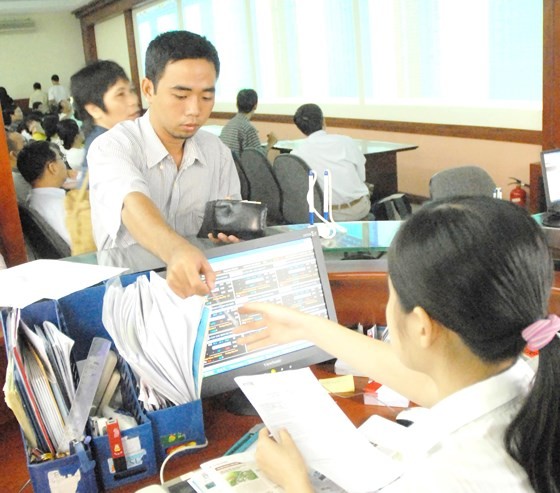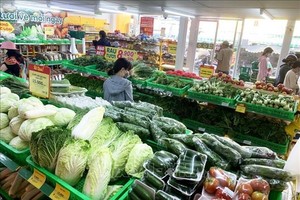
Liquidity on the market has also improved. Positive external information along with domestic macroeconomic factors is expected to help the market to form upward trend during the end of this year.
In comparison with last year, the country’s stock market is seen to be less volatile in the first half of this year as it fluctuated in a quite narrow range. Experts said that internal factors did not have any serious problems but there was no motivation to move upwards after the Vietnam’s benchmark VN-Index plummeted heavily in 2018.
Meanwhile, external factors, especially the trade war between the US and China which has showed signs of escalation, have affected directly to the market. Therefore, movement of the stock market depends on each stock and ‘taste’, stock prices will increase. In fact, statistics of securities companies showed that in the first three months of this year, stock groups, including thermoelectricity, aquaculture, textile and industrial parks rallied positively.
By April and May, gas and oil stocks advanced strongly, significantly affecting the market. In June, banking stocks returned to lead the market. In July, firms have been preparing for semi-annual reports and stocks with optimistic business results, leading stock groups, such as banking and industries benefiting from the trade swirl, including textile and timber have also climbed positively. This showed that cash flow will still look for opportunities in informative stocks.
Since the beginning of July, investors have returned to the market thanks to several positive global macro-economic information. Particularly, the US Federal Reserve signaled the possibility of interest rate cut in July and tension caused by the US-China trade dispute showed signs of cooling down. Demand on the market has concentrated mostly on large-cap stocks, especially banking and gas and oil stocks, helping the index to recover impressively.
Judging the general market, experts forecasted that the market will become positive again once liquidity starts to improve. If resonating with positive external information, for instance, the US and China might reach a trade agreement and the fact that Fed continues to follow a cautious interest rate policy, positive domestic macro factors will support the market in establishing rising trend during the last half of this year. Many securities company forecasted that the VN-Index will likely to hit target mark of 1,068 points in the last quarter of this year and hover above 1,000 points by the end of this year.
Market liquidity in July has improved compared to previous months with some trading sessions in which domestic capital alone nearly touched VND3 trillion whereas average trading value of trading sessions in June was merely around VND2.5 trillion per session.
Moreover, foreign investors have also contributed greatly to recent recovery of the market when they continued to net buy more than VND1 trillion in the first two weeks of July whereas they net sold heavily in the last six months. Since the trading session on July 18, foreign investors have net bought for 11 consecutive trading session. On July 16, they bought nearly VND480 billion when the market strongly fluctuated.
At the same time, the launch of covered warrants which have been officially traded since the end of June will trigger bullish sentiment for the market as this product is expected to boost both domestic and foreign cash flow, at least in the initial period, helping to give significant pushes to motivate the benchmark during the last months of this year.
Besides, the EU-Vietnam Free Trade Agreement also generates positive effects on Vietnam’s economy, hereby indirectly influence positively to stock market via stock groups benefiting from the agreement such as textile, aquaculture, timber and logistics. The EVFTA and the Comprehensive and Progressive Agreement for Trans-Pacific Partnership as well as the hard-to-end trade war between the US and China will help it become more easily for Vietnamese products to approach new markets.
The Market Analysis Department of SSI Securities Company said that foreign cash flow will rely on both domestic and foreign macro factors. Poor growth in the Vietnam’s economy in the first six months of this year has been forecasted in advance but it is also close to the target set by the Government. Indicators, such as PMI or industrial production index, all signal that the economy will continue to be stable.
Result of the Fed’s meeting in the end of July will directly affect foreign cash flow and global market. In case that Fed cuts interest rate in the end of this month, the VN-Index will possibly react positively and cash flow will keep pumping into the Vietnam’s stock market.
























